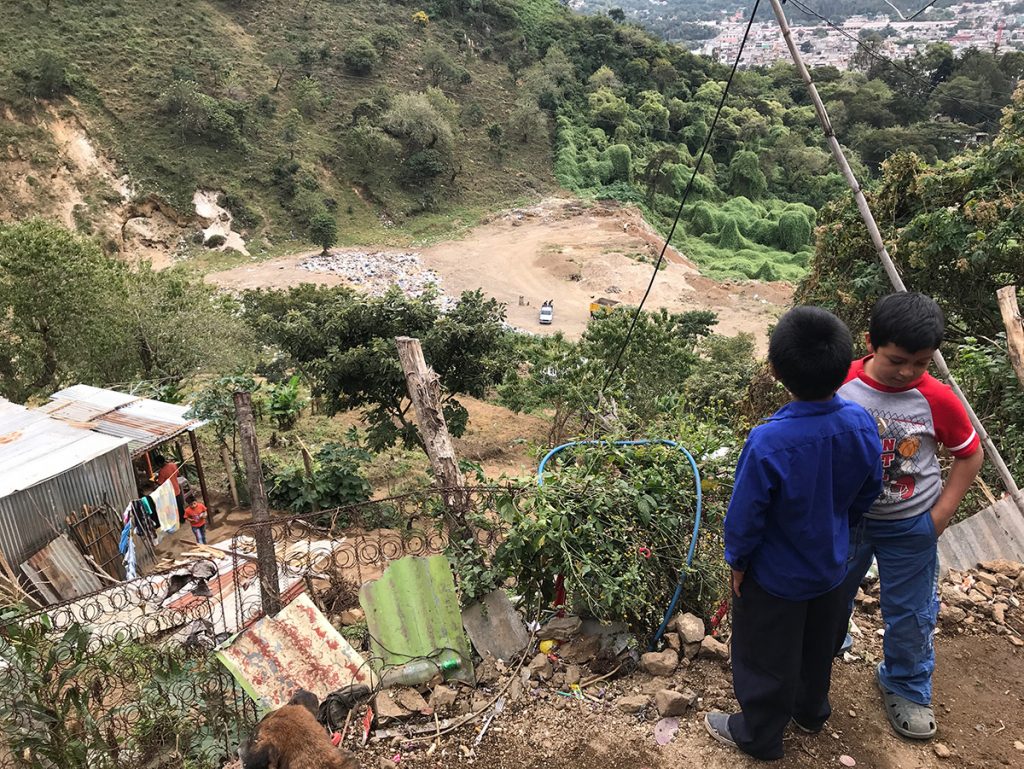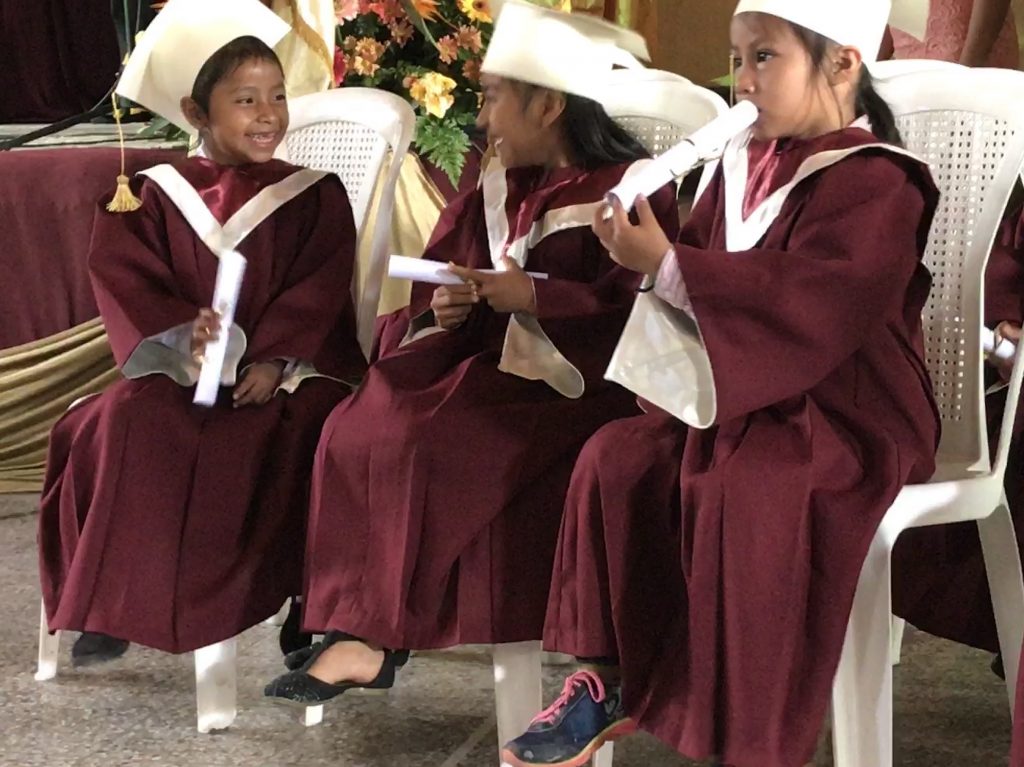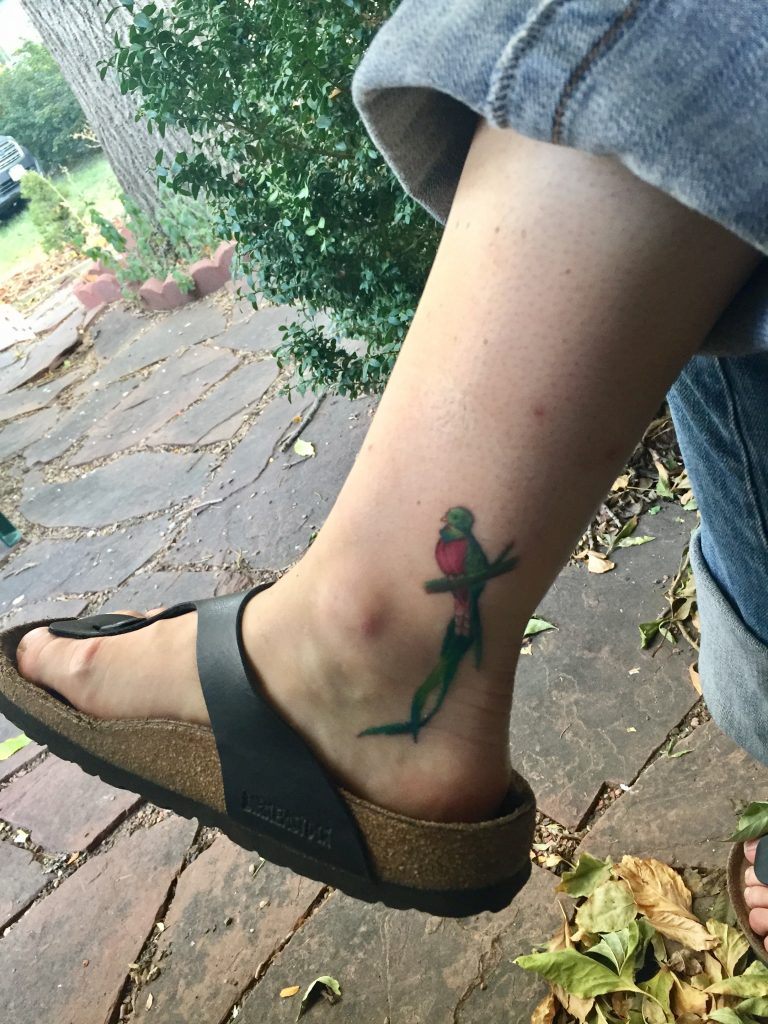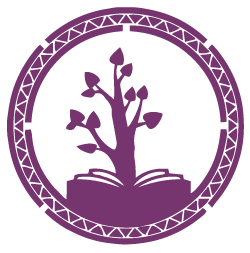The end of a decade, a return to Guatemala, and the meaning behind my new tattoo
The stove smoke pierced my lungs at first breath outside the airport, the air heavy with pollution and the struggle to survive on what little resources exist. I found my name on a sign, held by Sergio, and he walked me to the small car of his cousin. Sitting in that car as we pulled away from the airport, I was uneasy.
I was in another country — a country my uncle warned was far too dangerous to frequent — in a car of someone I did not know, winding through the busy streets of Guatemala City, where rumors of cartels, gangs and corruption flooded my mind. A red bus, the kind my Spanish teacher said never to ride because of extortion, slid right next to us. I felt small and vulnerable.
My mind raced. What if someone made a deal for the sign with my name on it at the airport? What if this little car is not actually going toward Antigua? What happens if I end up somewhere I’m not supposed to be or with people I’m not supposed to be with? What if I never make it home?
Feeling afraid is okay. Living afraid is not. If I’ve learned anything in the last decade of my life it is just that.
There is an evolutionary component of fear. It’s a protective mechanism, from serpents, from strangers and from situations we shouldn’t be in. That type of fear evokes a flight or fight response, and we should pay attention to that.

Kids from Escuela Integrada look down from one of their homes toward the local dump in Jocotenango on Nov. 7, 2017.
Some of what was going on in the car on the way out of Guatemala City was this type of protective mechanism. I now know more about the world I’m stepping into when I visit this country — extreme poverty, coercion, drug and alcohol abuse, broken families. I saw firsthand how hard, and how dangerous, life can be.
But some of my fear was completely uncalled for.
I’d been to Guatemala. I met Sergio last summer. I was completely confident in my friend’s ability to arrange transportation from the airport. I knew my way around Antigua. I had friends who lived there, who only spoke Spanish, and I knew I could call them if anything went awry. My language abilities also far outperformed the spattering of words I knew when I stepped off the plane last June.
What was going on in my mind last Saturday was an example of learned fear. Learned fear can come as a result of a first-hand experience, as is the case of Post Traumatic Stress Disorder, or through the knowledge of somebody else’s emotional state. I developed a learned fear of Guatemala as a byproduct of the documentaries I watched, the stories I penned and the discomfort I experienced when I saw firsthand how much poverty and pain afflicts the country.
My first visit, I didn’t have these fears largely because I didn’t know what to expect. Guatemala was a new concept for me. I had traveled to other parts of the world, but never Latin America. I heard reasons to be fearful, but I hadn’t been immersed in the reasons to be afraid.
Learned fear can be paralyzing. It can prevent you from taking the next step forward or being open to new experiences, people or ideas. It’s a tricky thing to navigate and to overcome learned fear; our forebrain must be trained to override the reaction of the amygdala, a process that takes time and hard work.
In my perspective, there is also a large God component to overcoming fear. When people ask me “Why Guatemala?”, the most honest response I can give is “divine providence,” and I truly believe that with my heart of hearts. God called me to serve in Guatemala this summer, and I listened. Simple as that.
Faith doesn’t have to be some grandiose action. It can be as basic as saying “yes,” when presented with an opportunity. Yet, the fruits of faith are abundant, one of which is the ability to conquer fear. To borrow a phrase from Matthew Kelly, “feed your faith and your fear will starve to death.”
As we sat in the oh-so-typical Guatemala City-to-Antigua traffic, I reflected on how I ended up back in country. The rational explanation doesn’t satisfy — I wanted to learn Spanish, I bought a plane ticket, I wrote some stories, the end. The spiritual explanation is enough to stir the hearts of the nonbelievers, and I have no doubt God knew exactly what He was doing when he placed me there this summer.
The fear evaporated. I was in Guatemala for the second time in six months. There is no way that would have happened without faith.
I made it to Antigua, opened the door of the car and rang the bell at Casa de Fuentes, where I spent what seemed like a million hours this past summer with the mission groups who helped Escuela Integrada. Mike and Morgan welcomed me with open arms, our two-week friendship from the summer proving just as strong, if not stronger than friendships developed over countless years.
They left for the market and I stayed back to take a quick nap. When I woke up, I tightened my Chacos, piled my travel-worn hair atop my head and walked the familiar cobble stone streets to meet them for dinner at Rainbow, a place that birthed many stories this summer.

First graders tell secrets and use their diplomas as trumpets at graduation on Nov. 8, 2017.
We dove head-first into a week of planning and home visits, graduations and fundraisers, fellowship and thanksgiving for all the ways Escuela Integrada has grown and the ways it will continue to grow in the future.
The week was not free from heartache — each home visit challenged every ounce of compassion I carried. We witnessed dozens of people plastered beyond comprehension propped up against storefronts in Jocotenango, likely their means of escaping the difficulties of their impoverished lives. Kids walked around one-room, dirt-floor homes barefoot. Malnourished dogs ran through the streets and across rooftops. Black diesel smoke plumed from the back ends of the chicken busses and the semi trucks that hauled supplies, and often people, from town to town.
It was all-too-familiar as we drove through narrow passageways, protected in some small way by the thin pane of glass on the microbus. Women and children walked with heavy loads alongside the busiest roads. Armed guards stood in doorways and in the back of pickup trucks, while some scurried past on mopeds with rifles drawn. That, above anything, should have scared me. It didn’t.
The work we were doing in Guatemala and the work we will continue to do is mission-driven. It requires faith at every juncture — in planning meetings, on home visits, and, certainly, when driving or walking through a country where corruption is the norm. This type of faith confronts fear in the most powerful way possible.
There is a sense of captivity that comes with fear. When we allow fear to trap our hearts and souls, life becomes a lot less interesting. Learned fear can also stop us from growing and walking through the discomfort toward freedom.
My 20s were tough. I faced things I never thought I would in my 20s, much less the entirety of my life, with the most recent being a two-and-a-half year legal battle. I fought learned fear with each step of the legal process. Fear-based questions became the norm: Does this make me unworthy? Did I do something wrong? Was it my fault? What happens if someone finds out this happened to me? Am I a bad person? Will it happen again?
On June 23, the case settled out of court. It was a Friday afternoon. I raced around town to find a notary and a fax machine, and I left for Guatemala the following day.
When I returned to the U.S. in August, I had a lot to process. I spent six-and-a-half weeks in a world not my own. I was also free for the first time in 31 months from a process that held my heart captive in fear. God broke open those parts, and began to rebuild the faith that conquers fear.

The quetzal is a permanent reminder of the fear I lived through and the faith that grew as a result.
A week before my 30th birthday, I got a tattoo of the national bird of Guatemala, the quetzal, as a reminder of the fear I lived through and the opportunity to face fear head-on in the future.
The quetzal is a symbol of freedom. It is a near threatened species, and, until recently, was thought unable to breed or survive in captivity. In some Mesoamerican languages, the word “quetzal” can also mean precious or sacred. It is one of few species where both males and females share the responsibility of incubating the offspring. It’s a fragile bird that has inspired centuries of art in all mediums.
The quetzal is representative of all of this for me. Fragility. Sacredness. Mutuality in what I hope eventually will be child rearing in my own life. A distaste for captivity and a longing to help others enter into greater freedom from the traumas or burdens in their own lives. An embrace of the beauty that comes from surrendering into the consoling love of our Father in Heaven, and the art created as a result.
And, just as the quetzal cannot survive in captivity, we cannot survive, much less thrive, when our hearts are held captive by fear.
This summer in Guatemala, I learned about my namesake, my aunt Kathleen Ann Jones, and her time in Latin America as a teenager. I learned about my dad’s experiences seeing poverty first hand. I learned about my grandfather’s studies of Latin American culture. I spent time with those who have few material goods, yet exude more joy than the richest people in the United States. And, perhaps most importantly, I relearned how to listen to my heart and to the voice of God to experience true freedom over fear, the kind that only comes by way of faith.
Being back in Guatemala this past week was confirmation of living faith-forward. I spent time with some amazing individuals who also choose to live faith-forward and mission-mobile. They confront fear with each new project for the school and engage prayer whenever they encounter an unforeseen obstacle. They allow the Spirit to work in and through them to continue serving others.
Faith doesn’t mean having all the answers, not even close. But it does mean to believe in something greater than ourselves and to live from the heartspace where God is present. Faith gives us the strength to embrace freedom, overcome fear and accomplish big things.
Bring it on, fear. We are ready for you.
This post originally appeared on Autumn Jones’ Medium website.

